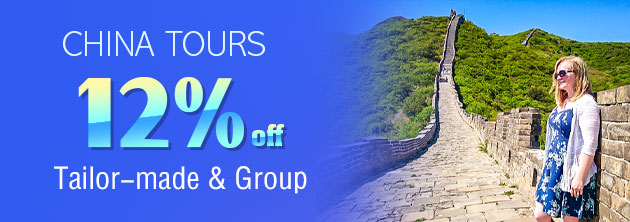Korla Introduction
Located to the north edge of Takla Makan Desert, Korla City is about 500 km (about 311 miles) south of Urumqi, the capital city of Xinjiang Uygur Autonomous Region. As a chief traffic junction on the Silk Road, Korla means 'Look around, Lookout' in Uighur language. As an important city in south Xinjiang, many famous tourist attractions are scattered in and around it. Known as 'City of Pear' since old times, Fragrant Pear is the most famous of the local products. Distinctive ethnical flavors and cultures in Korla also allure millions of tourists every year.
![]() Korla History
Korla History
![]() Things to Do
Things to Do
Korla is a beautiful city. The Swan Lakes in the vast Bayanbulak Grassland is the summer resort for groups of swans, gulls and many other rare birds. Each year in April, thousands of birds, which migrate back from the south, make the area's scenery perfect with swans, lake, mountains, grass, cloud and cows. Bosten Lake, which is one of the largest fresh water lakes in China, is the cradle of the Mother River of Korla City, Peacock River. There is also the longest inner river of China, Tarim River, and the biggest as well as the most beautiful and dangerous desert of China, Takla Makan Desert, world renowned Lop Nur and Yadan Spectacle. In addition, historical and cultural relics such as Ancient City of Loulan, Tiemen Pass (Iron Gate), Kizil Thousand-Buddha Caves and Subashi Ruins in and around Korla City let people know more about Chinese culture and history.
![]() Uighur People
Uighur People
'Uighur', which means 'Union, Unity', is what Uighur people called themselves. Tracing back to the 3rd century BC, the nomad ancestors of Uygur were wandering around Lake Baikal. Most of them moved to the Western Region after 840 BC and became residents supported by agriculture. After several generations, intermarriage with local people (Han Chinese, Tubo, Qidan, Mongol, etc.), the Uighur people came to exist in the early 13th century. Uighur people like to eat food made from flour, beef and mutton. Nang, the typical food in Xinjiang is most welcome. Made by wheat or corn flour and baked in a special stove, Nang can be preserved for a long time. It is preferred by the nomadic Uygur since ancient times. Steamed stuffed bun, pilau, noodles, milk tea and fruits are also favored by Uighur people. In the past, Uygur once believed in Shamanism, Manicheism, Nestorianism, Zoroastrianism and Buddhism. From the 10th century, Uighur people began to believe in Islam. Thus, their daily life is highly related to Islam. The important festivals of Uygur are the Corban Festival, Eid al Fitr and New Year's Day, and many of their festivals have originated from Islam. While visiting, please respect the local customs and their religion.
![]() How to Get to/around Korla
How to Get to/around Korla
Korla Airport is 17 km (about 11 miles) north of Korla City and offers limited airlines. It is best to plan the route carefully. Tourists can also choose Urumqi Airport as a transit station. There are trains to Urumqi, Turpan, Kashgar, Hami, Aksu, Lanzhou, Xian, Baoji, etc. A Long-distant coach is another good choice for traveling. Buses in the city are quite cheap and convenient but tourists have to hire cars or taxis to some scenery spots which are inaccessible by bus. Take enough drink water, food, clothes, wind-proof glasses, and even some medicine while taking a trip to the desert. Take care of the cameras; otherwise they might be damaged by the sand and dust.
![]() Weather
Weather
Since the annual amount of precipitation is only 40-50 mm and the annual average temperature 11 °C (51.8 °F), it is very dry and cool in the Korla area. The average maximum temperature is 26 °C (78.8 °F) in June and the lowest is -7.9 °C (17.7 °F) in January. Thus, August and September are the best times for traveling. What's more, many kinds of fruits will be ripe at that time and the Korla Fragrant Pear Festival will also be held.
![]() Dining
Dining
There are abundant delicious foods in Korla, including roast sheep, kebab, Nang, pilau, yogurt, roast fish, etc. Visitors can find many restaurants offering different flavors in the downtown area, as well as street vendors in night markets also serving tasty food. Xiangli Pear is a must for visitors since it is a special local product of Korla. Grapes, watermelons, apricots, figs and tomatoes are also extraordinary tasty.

